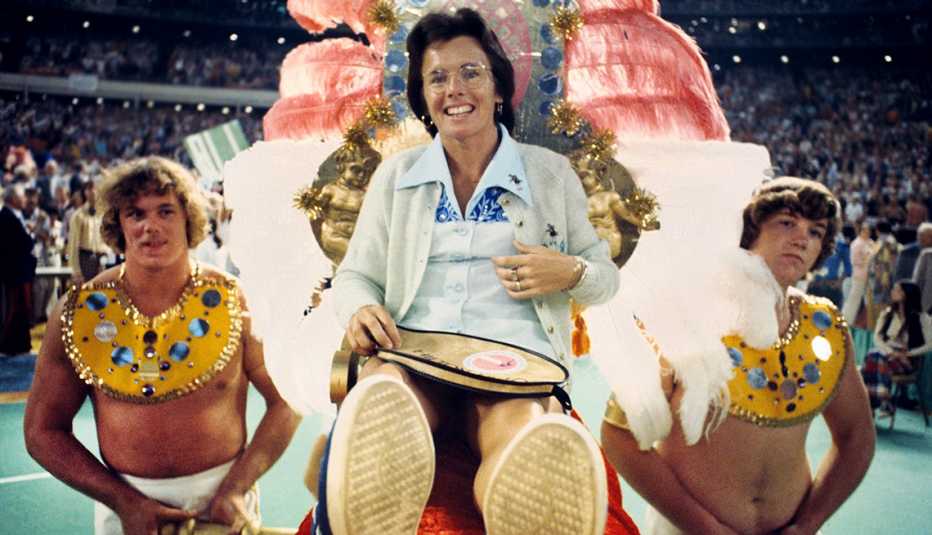Staying Fit
Q: Battle of the Sexes is out this month. How did your match with Bobby Riggs change America?
A: There was an explosion of growth in tennis. There were so many people who watched that match—the exposure, the tension, the buildup. People were starting to ask themselves questions [about gender equality]. I am big on equality and inclusion. I knew tennis was my platform.


AARP Membership— $12 for your first year when you sign up for Automatic Renewal
Get instant access to members-only products and hundreds of discounts, a free second membership, and a subscription to AARP the Magazine.
Q: Why was it critical for you to defeat Riggs?
A: I knew all about Bobby Riggs when I played him—I don’t think he knew much about me. He was one of my heroes. The reason I beat him is because I respected him so much. Everybody in the world thought a guy—any guy—could beat any girl. That got me irritated. When I played Bobby, this is what I wanted out of it: I wanted everyone to come together. I wanted to start changing the hearts and minds of people.
Q: Where did your passion for promoting equality come from?
A: When I was 12, I had an epiphany. I was at the Los Angeles Tennis Club. It was the 1950s. I started thinking about my sport. Everyone was white. I said to myself, Where is everybody else? It was heavy on my mind at the time. I promised myself that I would fight for equal rights and opportunities for boys and girls, men and women. The King-Riggs match gave me the biggest platform I could ever have had.
Q: Decades later, how do women and men react to the match?
A: I have not had one day in my life where someone doesn’t come up to me and say something about it. Women will say to me, “I watched that match. That gave me self-confidence for the first time.” Guys will come up and say, “I didn’t understand until I had a daughter.” Kids say, “My grandparents told me all about you. You played this big match against this guy—and you won!”
Q: And today’s gender fault lines?


































































More From AARP